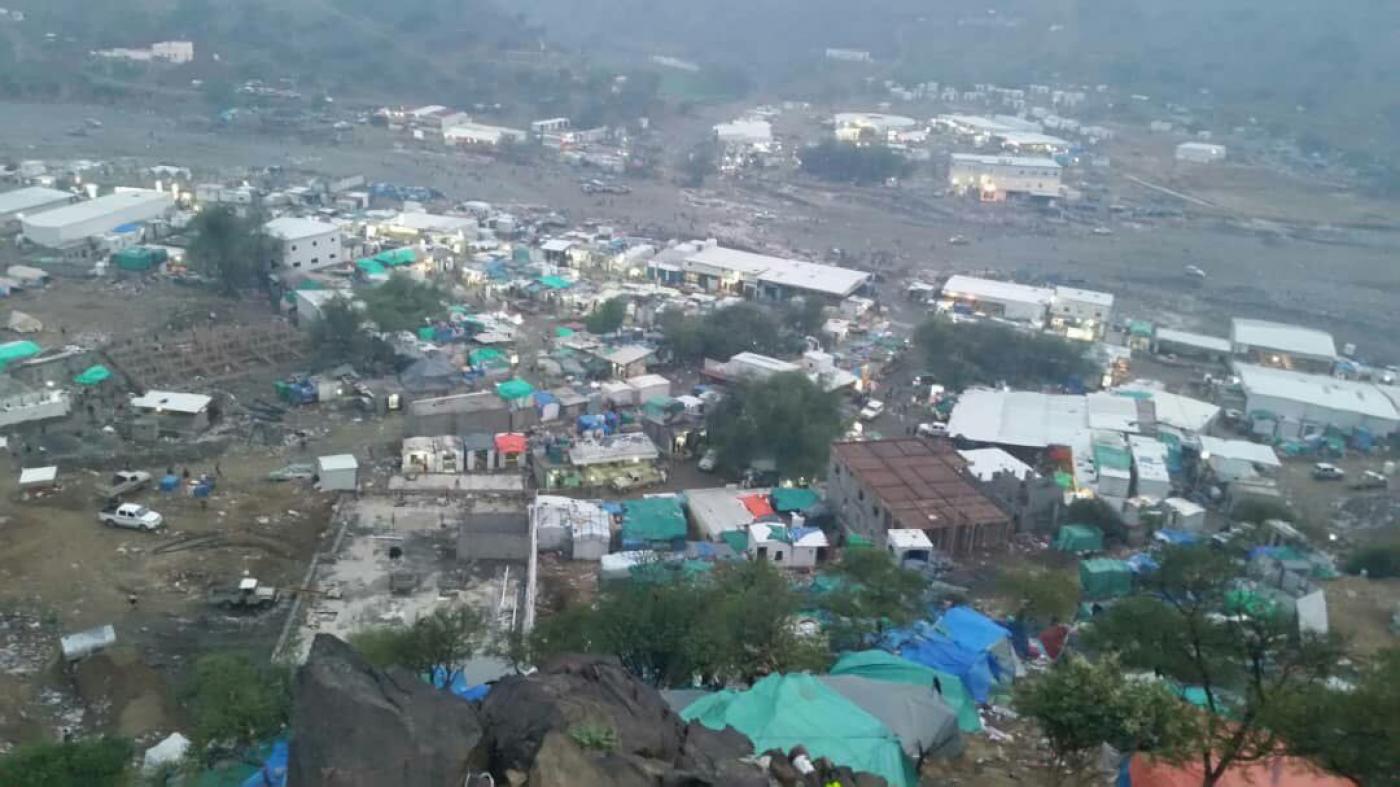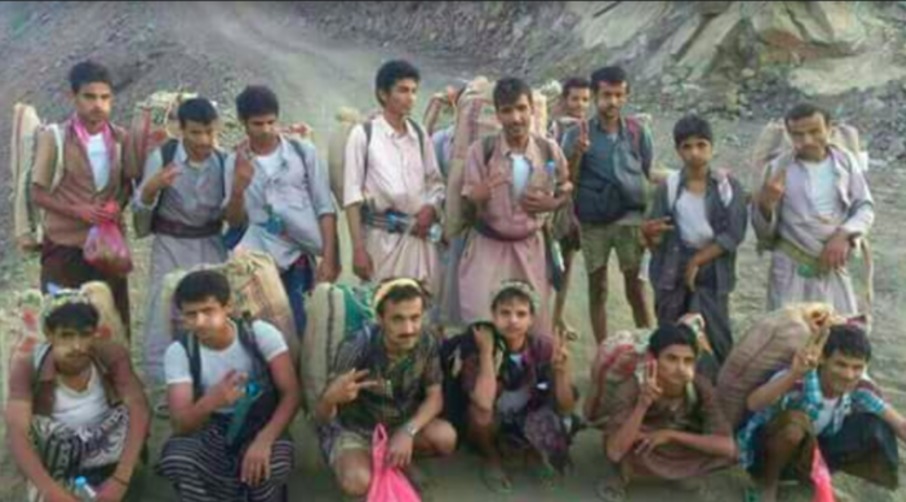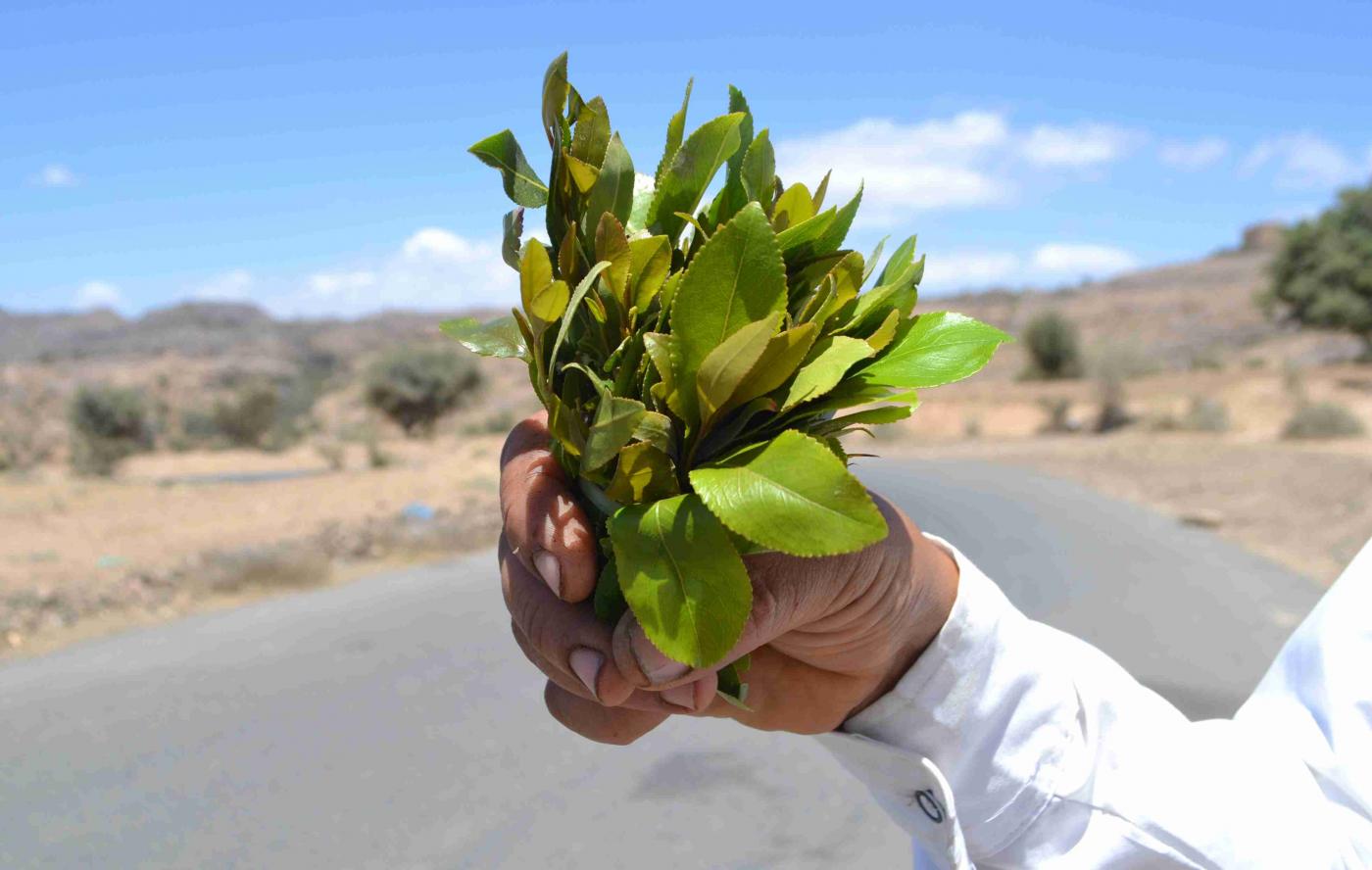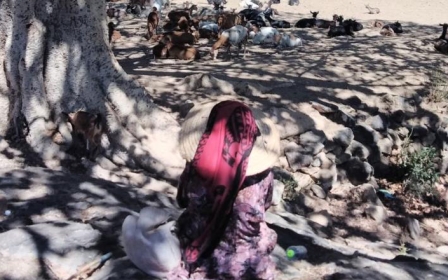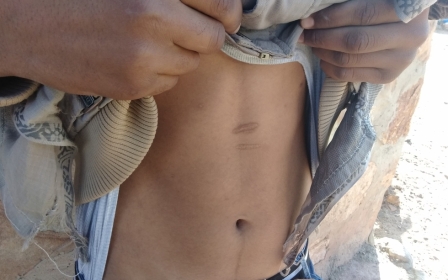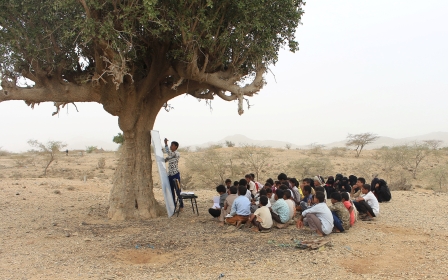Hunting children: Saudi border guards prey on teenage Yemeni qat smugglers
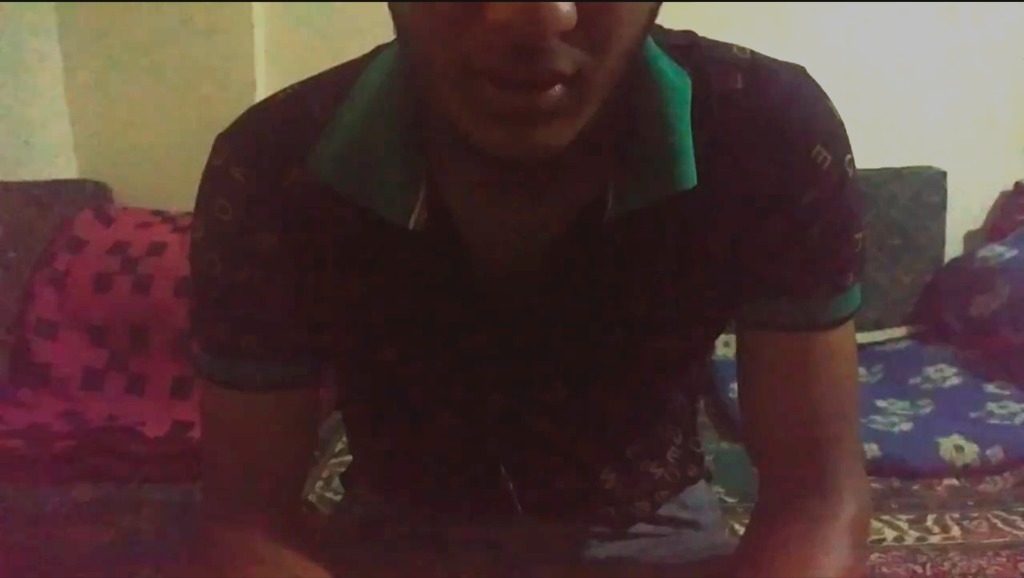
When he first went into the business of smuggling qat into Saudi Arabia, Taha was told by the smuggler employing him that it was a very easy process and that if he were to be captured, he would be deported unharmed.
This was two years ago. Taha was 14 years old. In August 2017, the Yemeni boy started working transporting the narcotic leaves - very popular in Yemen - across the border.
Four months in, his luck ran out. He was captured at the last Saudi checkpoint in the southern border area of Sabya, which is parallel to the al-Thabet area in Yemen.
'After I refused, I was tied down and beaten, two of the guards took turns raping me more than once'
- Taha, Yemeni child
“I was terrified, and I told the soldiers that this was my first time smuggling qat.”
After being threatened with jail and torture, he says the Saudi guards offered him a barter deal: do as they say in exchange for his release.
New MEE newsletter: Jerusalem Dispatch
Sign up to get the latest insights and analysis on Israel-Palestine, alongside Turkey Unpacked and other MEE newsletters
“The guards told me if I were to agree to their demands, I would be released and my work in qat smuggling would be facilitated.”
Taha was shocked at their proposal and refused completely, but that only made matters worse.
The guards specifically told the boy: “If you let us fuck you, we will let you pass, give you money, and allow you to walk from here all the time.”
“After I refused, I was tied down and beaten, two of the guards took turns raping me more than once, and then I was deported,” he recalls.
Taha said he was beaten with the end of a gun and belts several times, and was threatened with jail and more beatings if he did not comply and keep quiet.
“All of this happened in their security booth. I was afraid that they might kill me or film me.”
“I was hit violently on my back and thighs; I felt extreme pain during the rape. I almost cried the whole day out of pain and fear.”
The borderlands
On the northern Yemeni border in the al-Thabet area in the Saada governorate, some 50 children are estimated to arrive every week to smuggle qat and other contraband into Saudi Arabia. Hundreds of these children are captured by the Saudi border guards, according to testimonies by smugglers, and dozens are physically and sexually assaulted.
For the purposes of this report, Middle East Eye spoke with 11 children, five of whom said they were raped by Saudi border guards.
The dire economic situation Taha's family faced forced him to leave high school and join relatives in the dangerous business of qat smuggling in the al-Thabet area.
“My father’s difficult financial situation made me think dozens of times about leaving school and searching for work,” he told MEE.
His father was a day labourer with the Ministry of Public Works and Highways. He stopped working in 2015 when most roadworks ceased due to the Saudi-led coalition's operations in Yemen, which made it very difficult for him to pay rent and household expenses.
'After what happened, his condition became much worse and a feeling of shame, inferiority and an urge for revenge against those who raped him took over
- Taha's father
At that time, Taha’s smuggling work was the only source of income for his family. He has to provide for his parents, an older brother and two younger brothers in school. His oldest brother, a farmer, is the only other family member working.
“I was very encouraged when I saw some of my neighbours in the village working in the qat smuggling business and making a lot of money and improving their living conditions.
“I realised I had no choice but to leave school and go to work.”
Isolated and traumatised
A traumatised Taha is now completely isolated from the community, according to his father, who described his son’s condition as “terrifying”.
“When Taha returned that day, he showed signs of beating and torture. He wanted to be isolated from people,” his father said.
“After he told us about what happened, his condition became much worse and a feeling of shame, inferiority and an urge for revenge against those who raped him took over him.”
Taha showed him bruises on his upper back and thighs, he recalled.
His father added that his son was unable to continue his education or reintegrate back into society, and that he is suffering greatly because of what happened to him.
Hunting children
There are others who feel this way, like 13-year old Belal. His father Saleh speaks of two members of the Saudi border guards known to be behind many assaults. "They are present in the area which is parallel to the al-Thabet border area,” he said.
“All they do is hunt down children, arrest them and rape them. My child is not the first and surely he won’t be the last. Many send their children to al-Thabet to work in the qat smuggling business for money.”
Smugglers carry 20kg of dried and ground qat into the Saudi village of al-Talida, which is only 3km from the last checkpoint in Yemen, at al-Thabet village.
The process takes no more than five hours, earning the smuggler up to 1,500 Saudi riyals (approximately $400) per job, according to children who work in smuggling.
Nabil Fadhel, head of the Yemeni Organisation for Combating Human Trafficking, told MEE that monitoring of such cases has stopped due to the ongoing war, adding that there are no statistics on victims of such assaults due to the absence of laws to criminalise human trafficking in Yemen.
“In the period before the war, [the number of] children who were being trafficked across the Yemeni-Saudi border reached 50 children per week,” Fadhel confirmed, adding that “these children are being exploited by gangs to beg [inside Saudi], smuggle qat and drugs and other illegal acts. They have also been exploited sexually.”
Fadhel explained that “using kids to do this kind of work [smuggling] is considered a type of human trafficking because these children are subjected to danger, hunger and fear”.
Lack of help
Like many other children who were subjected to similar experiences, Taha and Belal were never offered any psychological help.
“The aftermath of the children’s psychological state, if not treated, could last for years. Most of these kids are exposed to a sharp psychological trauma and therapeutic intervention is difficult", due to a lack of mental health care facilities in Yemen, psychiatrist Bushra al-Qaddasi, told MEE.
While practising as a psychiatrist in Sanaa, Qaddasi met with one of the child smugglers who had been raped.
“The child and families' culture of shame and covering up of these cases contributes to their increase, and deprives the children from obtaining psychological support as well as making their cases public and seeking justice.”
The doctor, now based in Cairo, added that "negligence and ignorance of these cases will contribute to the deterioration of the victim’s condition, causing the development of serious psychological problems such as phobias, panic attacks, and could eventually turn him into an unstable person or lead him to committing suicide."
Psychologist Jamal al-Yusufi worked with a child who had been raped by a Saudi guard while working along the Yemeni-Saudi borders as a qat smuggler.
“I was visited by a child along with a family member about two years ago. The case was very advanced. He was unable to speak. He had lost the ability to talk after the incident. He was like this for more than a year,” he said.
Yusufi added that the child only attended four sessions, after which the family said they travelled to another governorate. Yusufi explained that the culture of not caring much about psychological therapy prevented many from receiving it and that it will impact negatively on the mindset of the victims of such attacks.
The profit motive
Mahmoud al-Hamdani is a qat smuggler from al-Thabet. He sells the narcotic plant to customers inside Saudi Arabia and collects large volumes of it on the Yemen side, before distributing it among smugglers. “Most qat smugglers are young men and children. They like this type of work because of its high profitability,” he told MEE.
Hamdani works with distributors and smugglers who work on the Saudi side of the operation and deliver qat to the end users. He explained that smugglers cooperate with Saudi border guards. “We have an arrangement with the Saudi side to receive the smuggled goods.”
“I use donkeys alongside humans for smuggling,” he said.
As to why he prefers to work with children, he listed several reasons: “First, children do not get imprisoned [for long periods of time], they get released. In addition to that, the financial incentives tempt children and teenagers, unlike those who are over 20 years old who realise the dangers of [this] work. Children are also chosen because of the ease with which they travel between the borders and narrow and rough terrains.”
The penalty for adults who smuggle qat could be up to 40 days of prison if the amount of qat is small, and up to three years for a large amount.
Regarding incidents of psychological and sexual abuse against children, Hamdani says that he has personal knowledge of children who used to smuggle qat for him and who were raped, “but everyone knows that our work is very dangerous”.
“When a smuggler is arrested, he is supposed to be deported or transported to a command prison inside the limits of the [Saudi] Southern Border District or the general prison in the border area.”
Not a new problem
According to Lamia al-Eryani, founder of the Yemen Peace School and chairperson of the Supreme Council of Maternity and Childhood in Sanaa, trafficking children into Saudi Arabia is an old but recurrent problem.
“There are several cultural, societal, and economic reasons that pushed smugglers to exploit children in smuggling operations, exposing many of them to acts of rape,” she told MEE in a statement.
She added that there has been no serious intervention to limit the phenomenon of child trafficking. While Yemeni authorities did establish two centres to receive and house trafficked children and returnees from Saudi Arabia - one in Sanaa city and the other in the Harad area - the former was closed after two years.
The statement confirmed that “there are organised gangs that exploit and traffic children in methodical, continuous and growing ways while the children and their parents are unaware of the dangers and grave repercussions that children face during their work along the Yemeni-Saudi borders, and the possibility of their death or exposure to various types of violations, including sexual ones.”
It added that the Supreme Council was working with the Houthi rebel administration's ministries of interior, human rights, social affairs and labour in Sanaa to take measures guaranteeing the protection of Yemeni children from trafficking and other violations they were subject to by the Saudi guards.
No laws to protect victims
Salim al-Thabeti, a tribal sheikh in the Thabet area where the smuggling is based, told MEE that hundreds of Yemenis - especially from the governorates of Saada, Raymah, Hajjah, and Ibb - were working in the qat smuggling business to Saudi Arabia, and that children under the age of 18 formed the bulk of this workforce.
'The law does not support the victims since they have snuck into Saudi border areas'
- Salim al-Thabeti
According to the sheikh, Saudi border guards "cooperate a lot with the sheikhs of Saudi villages to facilitate the process of transporting qat to them.”
He confirmed that he had been informed of many cases of sexual assaults and torture of Yemeni children, adding, however, that “the law does not support the victims since they have snuck into the Saudi border areas”.
“I’ve spoken with the sheikhs of other villages to put an end to this problem, but they too cannot talk about it with their helpers from the Saudi border guards as they do not want to harm their interests.”
If local sheikhs were to complain about the borders guards and their actions against children, the guards might take revenge against them by preventing qat smuggling altogether, thus depriving the sheikhs of a lucrative source of income, he explained.
Turning a blind eye
The directorate of the Southern Saudi Border Guards did not respond to MEE's request for comment by the time of publication.
Mohammed Khamis, a Saudi lawyer, said that such cases would need physical proof under Saudi law, in addition to the children’s testimonies, but that there was no legal precedents in the Saudi courts for the prosecution of such cases.
“The kingdom incriminates cases of rape if it was proven with irrefutable evidence or the testimony of four witnesses," he said, adding that, if convicted, an alleged perpetrator would risk flogging or execution.
The high number of eyewitnesses needed to bring a conviction, however, means that prosecuting cases of rape is nearly impossible, especially when such instances involving Yemeni children occur in guard booths in isolated area, Khamis pointed out.
“Cases of rape in the kingdom are treated criminally like cases of adultery, however, there is no written law in the Saudi literature of crimes and punishments that incriminates rape and sets its punishment.”
With no punitive or preventive action likely to be implemented either side of the border, and the traffic of qat remaining a lucrative business in war-ravaged Yemen, children remain at the mercy of Saudi border guards with little hope for protection or justice.
This article is available in French on Middle East Eye French edition.
Middle East Eye delivers independent and unrivalled coverage and analysis of the Middle East, North Africa and beyond. To learn more about republishing this content and the associated fees, please fill out this form. More about MEE can be found here.


